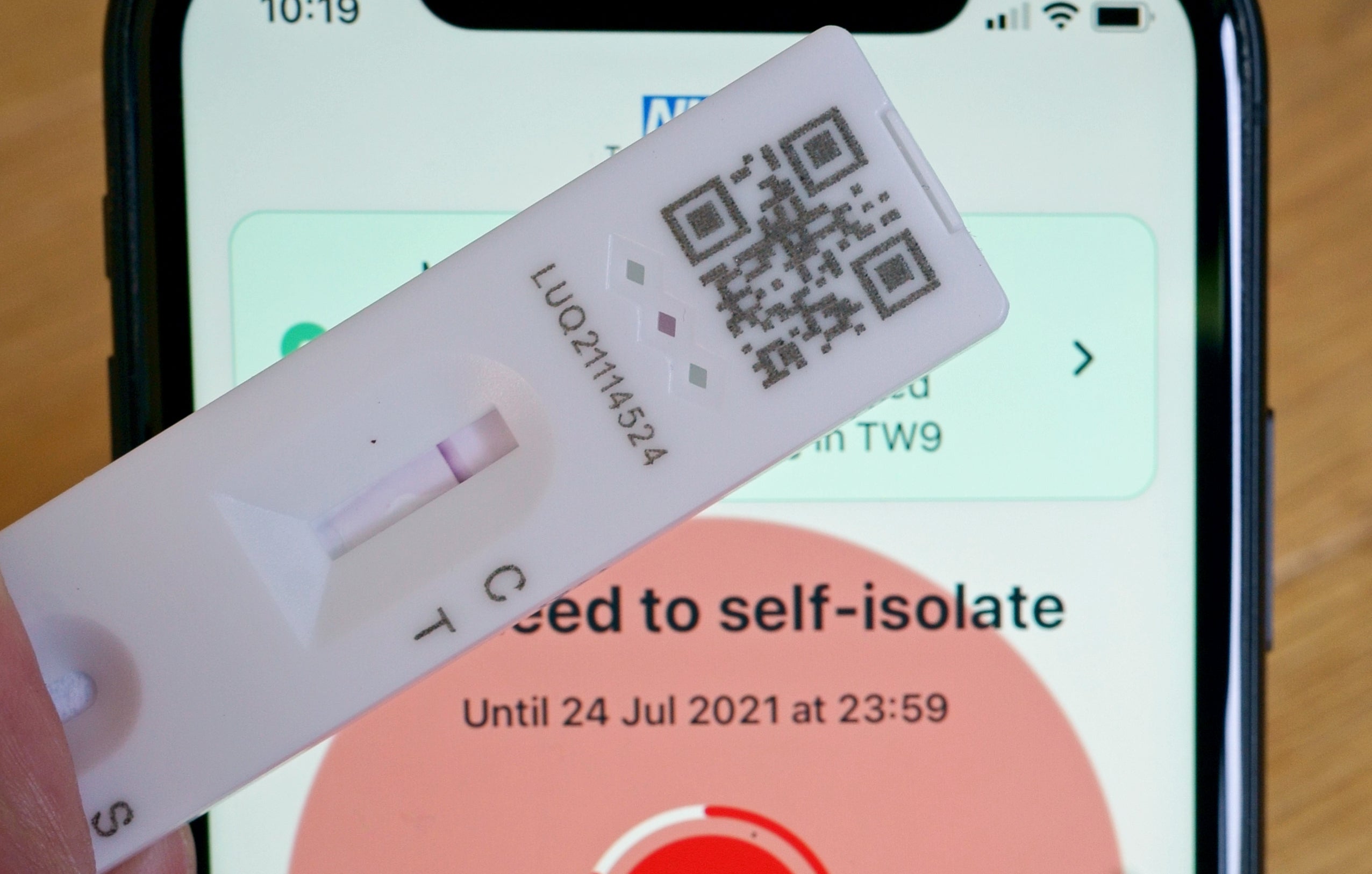
The NHS Covid app, once an integral part of British lives, is being switched off for good on Thursday.
The app was originally developed as part of the UK government’s Test and Trace programme in March 2020 as the world went into lockdown in response to the global spread of Covid-19, although a slew of technical problems meant it was not ready for release until September that year.
When it did go public, after a whopping £35m had been invested in the project, the app was downloaded more than 21m times and became necessary to enter bars and restaurants and board flights, issuing regular “pings” to warn the public when it was time to self-isolate after coming into contact with someone infected with the coronavirus as part of the campaign to stop the spread.
While that function in itself undoubtedly saved lives, it also resulted in a “pingdemic” in summer 2021, when businesses complained of mass staff shortages caused by the app’s trigger-happy readiness to issue quarantine orders, leading to production lines falling silent, delivery lorries standing idle and shop shelves facing shortages.
Explaining the decision to shutter the app, a spokesperson from the Information Commissioner’s Office said: “Decommissioning was a key part of our expectations for the NHS Covid app. We made it clear to the Department of Health and Social Care that for people to have confidence in the app, they must be able to trust that their data would be deleted once the app was no longer required. We’re pleased that our work, started in March 2020, has helped to protect millions of people across the UK.”
While the NHS Covid app certainly served its purpose, it is unlikely to be missed, with most people keen to forget about the pandemic altogether at this point and reluctant to resume wearing masks or observe social distancing measures in public spaces.
However, Covid remains a part of our lives and many clinically-vulnerable people still face a serious threat to their well-being.
One woman who has a clinical illness, Imogen Dempsey, told Sky News this week: “Everybody is tired and fed up and could do without having to talk about Covid anymore.
“For people like me, the fact that we still need to think about being so careful and our lives are still so much on hold, absolutely we’d like things to be different – but they’re not.
“Covid hasn’t gone away, and stopping recording it and trying to ignore it isn’t actually a public health strategy.”
The impact the coronavirus is continuing to have on the British workforce can meanwhile be illustrated by figures from productivity analysts GoodShape, which reveal that 3.6m working days were lost to staff absences attributed to the virus in the first quarter of 2023 alone, worth £792m to the economy.
Prior to that, 771m working days were lost to Covid in 2022 as a whole, costing Britain an estimated £10.6bn.
“The pain of the pandemic is still with us,” GoodShape CEO Alun Baker said. “Whilst we are a long way from the figures at the height of the pandemic, Covid remains the fourth highest cause of employee absence.
“Absence rates – a leading indicator of employee wellbeing – have increased across all age groups over the last decade. We now have record inflation and falling productivity, which are crippling growth. The workforce is a vital component for levelling up, but output will be thwarted if staff absences continue to rise.”
There is also the rise of the Arcturus sub-variant of Omicron to consider, which has led to a surge in infections in India and has been detected in at least 34 countries so far, according to the World Health Organisation.
Also known as XBB.1.16, the strain has led to five deaths in the UK and around 135 cases have been detected at the time of writing, according to UK Health Security Agency data.
Virologist Professor Lawrence Young from the University of Warwick told The Independent that the rise of the new variant is a sign that “we’re not yet out of the woods.”
“We have to keep an eye on it,” he said of Arcturus. “When a new variant arises you have to find out if it’s more infectious, more disease-causing, is it more pathogenic? And what’s going to happen in terms of immune protection.
“These kinds of things highlight the importance of genomic surveillance but a lot of countries including our own have let our guards down a bit and we can’t be sure what variants are around and what level of infection they’re causing until we see a significant outbreak.”
Whether the decision to close the app counts as further evidence of Britain “letting its guard down” remains to be seen, but Professor Young is far from alone in warning that the UK has not learned the lessons of Covid and may not be ready to face the next pandemic, given that public services are being dismantled and key research defunded.

Sir John Bell, a leading immunologist and a member of the UK’s Covid vaccine task force during the pandemic, wrote in The Independent recently that it is all too easy to dismiss Covid as a “once in a generation crisis”.
He warned that it is “a question of when, not if, another pandemic strikes”, adding that the nation needs to adopt an “always on” approach that includes building a more resilient healthcare system, carrying out better surveillance and identifying future threats.
“Despite everything we have learned, we are not ready for the next pandemic,” Sir John said.
“The next pandemic could be even more devastating than the last. We must be in a constant state of readiness for the next big health crisis – if we do not act now, we will not be forgiven.”
Professor Teresa Lambe, one of the principal investigators leading the Oxford-AstraZeneca programme, said the UK had failed to take on board many “hard-learned lessons” from the pandemic and urged the government to invest in further preparation for the next virus.
She highlighted the government’s decision to “disband” tracking systems – including its “gold standard” Covid survey, the last remaining system used to monitor infections – as a sign that the country would not be fully prepared for another pandemic.
Writing in The Independent, she described such surveillance systems as “crucial” for identifying new variants, tracking case numbers and helping the UK to tackle any virus spread.
“We have learnt time and again that we need to track this virus carefully to distinguish if the current vaccine recommendations are enough,” Professor Lambe said.
“Without more of a concerted effort to work together and invest in pandemic preparedness, we are sitting ducks for the next virus.”







